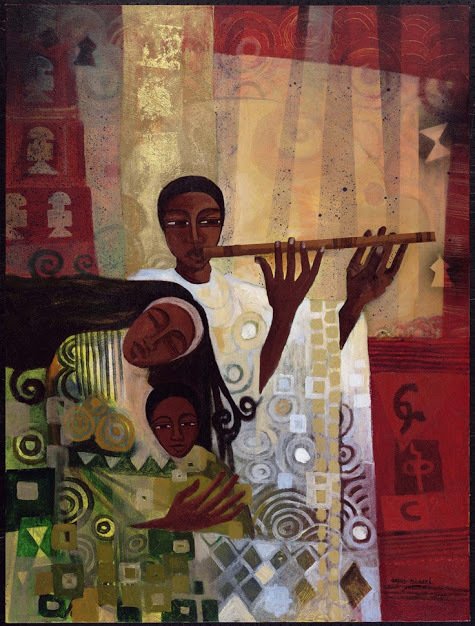Orpheus

Euridice died and went to the underworld. Orpheus descended and asked the gods to give her life again. They refused until he moved their souls with his beautiful melodies. They said he could return with her to life above if and only if he never looked back to see if she was following him. He consented but when he finally reached the light he looked back in joy but Euridice, who was not yet above, disappeared from his sight.
Aspects of the Orpheus myth were changed or given different interpretations by many Greeks throughout the ages. Sometimes it was interpreted that Orpheus had failed the test of the gods because he looked back. In other interpretations it is emphasized that Euridice was never following him; her presence and hope for her return was the punishment of the gods because he disobeyed the gods by not accepting death. I like the story because the central lesson is so applicable to other aspects of life: if the gods give you grace and the go ahead for a new life, then go straight forward and don’t look back or astray.
I know nothing of the artist who painted this portrait but it seems to suggest Orpheus; perhaps the artists own portrayal of the Orpheus myth, of what Orpheus truly sought in his journey, or perhaps of what he desired to put back into alignment. I love what is expressed about the alignment of the family, of the masculine and the feminine, their reproduction, and the harmony of art and spirituality. Here, the juxtaposition of a black and African Orpheus instead of a white Greek figure expresses how these fundamental archetypal structures about gender, family, art, and spirituality are similar across cultures.
The “Dance Of The Blessed Spirits” is a part of Orpheus’ journey in the underworld. Gluck’s musical depiction of this episode is one of my favorite pieces of music. https://elmisterio.org/assets/music/contemplations/blessed-spirits.mp3